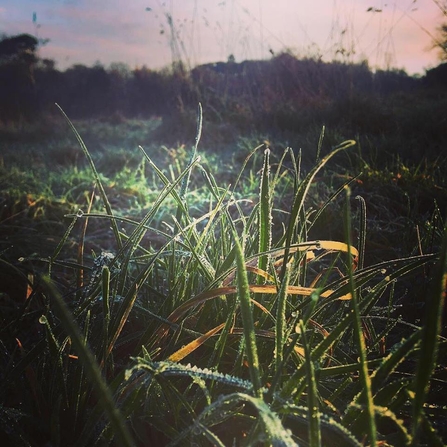The 12 days of (a wildlife) Christmas – 8 spiders a-silking
© Timo Newton-Syms
For day 8 of our 12 days of (a wildlife) Christmas we’ve swapped 8 maids a-milking for 8 spiders a-silking and will be on the lookout for our 8-legged friends across the parks and green spaces of Ipswich.
Although not everyone’s favourite species, there are approximately 650 species of spider in the UK and we are fortunate enough to have some really rather beautiful ones around us in Ipswich. My particular favourite is the wasp spider with its striking stripy body and impressive web with its characteristic and unique zig zag (stabilimentum) running through. It is thought that this zig zagged pattern is to reflect UV light and attract species such as moths, bees and flies in the hope that they become entangled in the female's cleverly crafted web.
It is common in a lot of species of spider that the female is larger than the male and this is most certainly the case among wasp spiders where the female is much larger than the male and definitely wears the (striped) trousers! Females mean business in the autumn mating season and so males approach with caution. Like lot of male spiders, they will wait on the outskirts of a females’ web waiting for her to undergo her last molt before approaching. The reason for this – her jaw is still soft from molting and if timed right, they can mate and escape from becoming dinner!
However, male wasp spiders are not so fortunate. Despite adopting the same tactic as other spider species, the female wasp spider will eat the male, not letting her soft jaw stop her! The male will be spun in silk and will be a highly nutritious meal later on. Once the female has laid her eggs and wrapped them in a protective brown egg sac she will die shortly afterwards, leaving her eggs in the long grass where she made her web previously in the hope they will hatch into spiderlings next spring.
As I went on a walk through the long grass in Holywells Park this week where I often find wasp spiders in the summer, I searched for other spider webs on a frosty morning. Even if spiders aren’t your species of choice, the craftsmanship of the webs and the dramas that unfold on them can be easily appreciated even if you’re not sold on the species itself.


